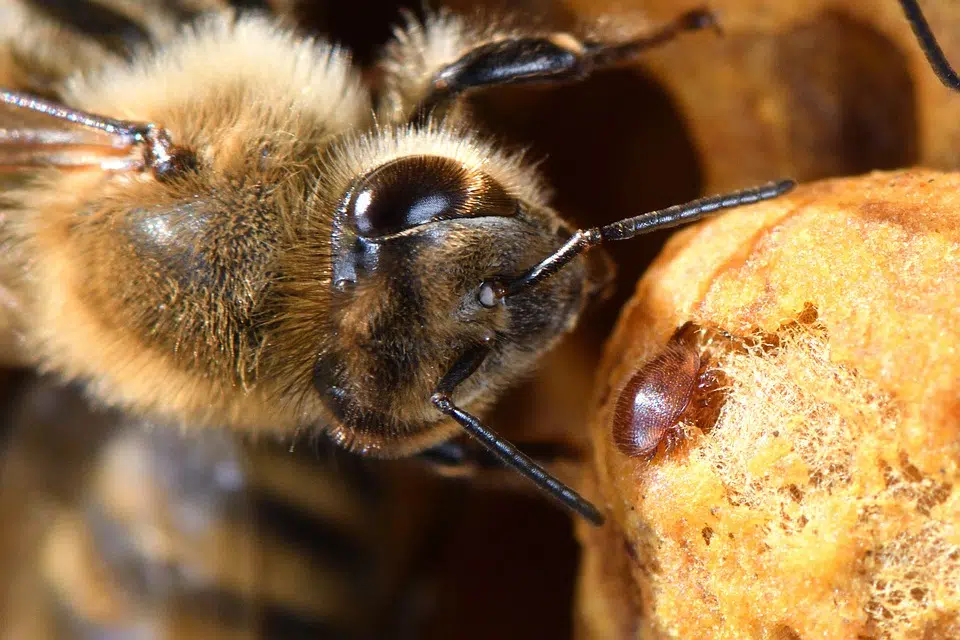
Bee with Varroa Mite (Stock image)
Some new development has been pushed forward by a researcher at Simon Fraser University, developing a new method that could help beekeepers fight against a deadly parasite that affects honeybees.
SFU professor Erika Plettner has developed a compound, 3c36, to deter moths from feeding on food crops; however, through trials, she has found it paralyzes mites, causing them to fall off bees.
Paul Van Westendorp, a bee expert in British Columbia says Varroa Mites work to harm honeybees by breaking the skin or the cuticle of the bee, while sucking bodily fluids and fat out of both adult bees and bee brood, which is the baby bees that are still developing.
“This mite has been able to synchronize its life cycle with the honeybee and that is what has caused so much damage,” he said.
“It’s a complex process going on where you have mites causing damage and the virus is as well so if we can control these mites so much better, bees will become healthier and the bees will become more productive.”
First introduced in British Columbia in the 1990s, Van Westendorp explains these mites are harmful to honeybee colonies.
“Ever since it has gotten into British Columbia, we have been struggling with this pest forever and ever. So out of necessity, beekeepers often have to use certain chemical control products in order to control these mites.”
The one issue, as Van Westendorp explains, is that there is a negative side to using these treatments on the honeybees.
However, Van Westendorp says Plettner’s strategy seems to be quite effective in managing Varroa Mites, while effectively having little to no impact on the honeybee.
“In a way that appears to be very effective at controlling these mites and it appears to be not very damaging or not having a very big impact on the honeybees, and that is of course very desirable.”
If Plettner’s research does come to fruition, Van Westendorp explains it will be significant for not only beekeepers but also for the products people buy at the grocery store.
“We like to have fresh fruits and that is all dependent on bees, and without bees, the whole system will not work so greater productivity of bees and healthier bees will benefit everything.”
Currently, there are only a handful of Varroa Mite treatments approved for use in Canada.














